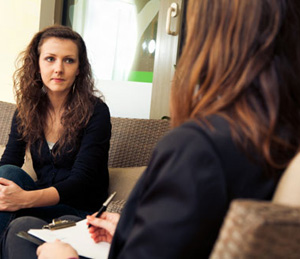Anxiety is normal, but work on it.
Anxiety is Perfectly Normal
We tend to have a rather negative view of ‘anxiety’ however, anxiety is perfectly normal. If we were about to sit an exam or take a driver’s test it would be natural to feel anxious. Anxiety can be beneficial as it helps to keep us motivated, alert and focused.
Anxiety is in fact our bodies’ way of preparing us to cope with a perceived threat and it is our bodies’ inbuilt alarm system. When we experience anxiety our bodies’ “fight / flight / freeze” response is activated.
Imagine being woken up in the middle of the night because you thought you heard an intruder in your home – my guess is that you would be anxious. Imagine the sensations you would experience in your body. Our bodies and minds react together so there are physical sensations to anxiety.
When we perceive a danger (intruder), our bodies release stress hormones causing physical reactions such as our hearts beating faster; we start sweating, our muscles tense and our breathing quickens. Our body is preparing to run away (flight); defend itself (fight) or stay perfectly still and hide under the duvet until the intruder is gone (freeze). While all this is going on for our bodies, our brains process the situation and evaluate the threat. Say for example “the intruder” is a family member rummaging in the kitchen for a midnight snack, then the fight/flight/freeze response is called-off by our brains, however, we may still feel very shaky, with sweaty palms and a racing heart beat even though we know we are not in mortal danger.
For many, we feel anxious when there is no intruder in our home and when there is no actual threat. Feelings of anxiety can be mild (uneasiness) or severe (panic). As well as affecting our bodies, anxiety affects how we think, feel and act.
Anxiety can interfere with everyday living because anxious thoughts increase the feelings of anxiety and the symptoms of anxiety – and so a cycle of anxiety can be created. People may begin to avoid certain social situations in an attempt to avoid feeling anxious. However, these situations are often not life-threatening and are most likely regular events like going to the shops, using buses, talking to people, attending parties etc. Anxiety can prevent people from doing things or attending events which they previously enjoyed. Feeling like you are under constant attack or that you need to run away is exhausting and draining.
Learning about anxiety is beneficial. Anxiety is particular for each person and the ways in which it can be alleviated vary from person to person. What works for me (music and singing) may not work for you. Self-soothing is something that we can develop to help combat anxiety.
Diet is crucial and The Natural Clinic Nutritional Therapists Leonard Murphy and Carol Daly work with balancing your hormones and the health of your nervous system to help your body to work with you.
Exercise works wonders for anxiety because exercise helps remove stress hormones while releasing feel-good hormones. Exercise also helps with sleep.
Relaxation is not just watching television. Learning a new relaxation skill such as progressive muscle relaxation is a beneficial strategy which helps people become aware of feeling relaxed by tensing then relaxing muscle groups throughout the body.
Breathing exercises take a while to perfect but are remarkably worthwhile. When we are anxious, our breathing becomes shallow and fast. We may even hyperventilate. Practicing calm breathing (where you inhale slowly through the nose, pause and exhale slowly through the mouth) is an excellent tool for anxiety reduction and can be used anytime anywhere.
Practicing visualisation helps with relaxation such as “you are on a warm, sunny beach, lying on the sand, feeling the sun on your skin…”
Consciously taking time, every day, to look at the sky and clouds and daydream can be of benefit.
If you have feelings of anxiety that are affecting your daily living please talk to a trusted friend, family member or a healthcare professional. Remember the old adage ‘a problem shared is a problem halved’. Sharing your thoughts can reduce their scariness and help give you perspective. You do not need to face your problems alone.
Caroline Crotty B.Soc.Sc. M.A. (Counselling & Psychotherapy) provides a confidential, therapeutic, counselling service to adults and children age 12+ years. Caroline provides wellbeing workshops to schools, community groups and organisations to encourage and nurture positivity. Phone Caroline on 087 710 7032 or email counsellingtherapy@live.
Book an appointment with Caroline here or through reception on 0214311977. 

